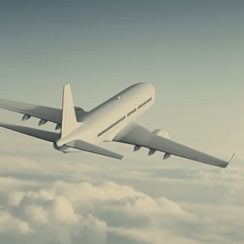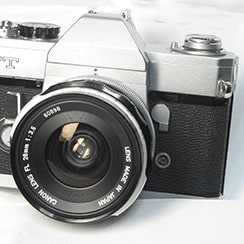Try GOLD - Free
Scale Aircraft Modelling Magazine - Feb 26

Go Unlimited with Magzter GOLD
Read Scale Aircraft Modelling along with 10,000+ other magazines & newspapers with just one subscription
View CatalogSubscribe only to Scale Aircraft Modelling
Cancel Anytime.
(No Commitments) ⓘIf you are not happy with the subscription, you can email us at help@magzter.com within 7 days of subscription start date for a full refund. No questions asked - Promise! (Note: Not applicable for single issue purchases)
Digital Subscription
Instant Access ⓘSubscribe now to instantly start reading on the Magzter website, iOS, Android, and Amazon apps.
Verified Secure
payment ⓘMagzter is a verified Stripe merchant.
In this issue
Despite the doom-mongering of Internet pundits, who have been eagerly predicting the downfall of the printed word for decades, SAM continues to go from strength to strength and approaches its 47th year of publication with content as original and vital as ever. No other magazine has provided such stability and continuity through these challenging times, and we continue to build on this reputation month on month with a balanced selection of news, reference material, and modelling that has maintained our pole position in a changing marketplace.
Scale Aircraft Modelling Magazine Description:
Scale Aircraft Modelling combines the three main aspects of the hobby into one magazine what to build, why to, build it, and how. We link the widest coverage of new product, advising you what is available, with in depth reference articles by acknowledged experts and informative build articles showing how to get the best out of specific kits, and from the hobby in general. The editorial team take pride in filling the pages with interesting, informative and relevant material, making best use of space and offering the best possible value for money to the reader
Recent issues
Related Titles

RCM&E

Warpaint Series

Phoenix Aviation Modelling

Flight Journal

Model Airplane News

Jetstream Magazine

Cruising Heights

SP’s Aviation

Life of Soldiers

FLAT OUT RC

CHECKSIX - The Military Aviation Journal

SA Flyer Magazine

Global Aviator

World Air News

Jetgala Magazine

Air Cargo Update

UTED INTERNATIONAL

Aviation Classics

Aeroplane

Drones Monthly

Pilot

Aircraft in Profile

Guideline in Action 2 - Atlantic Resolve

Flying

Private Aviation Sourcebook

Electric Flight

General Aviation Security

Heliweb Magazine

World Airshow News

Aviation News Journal Magazine




















































